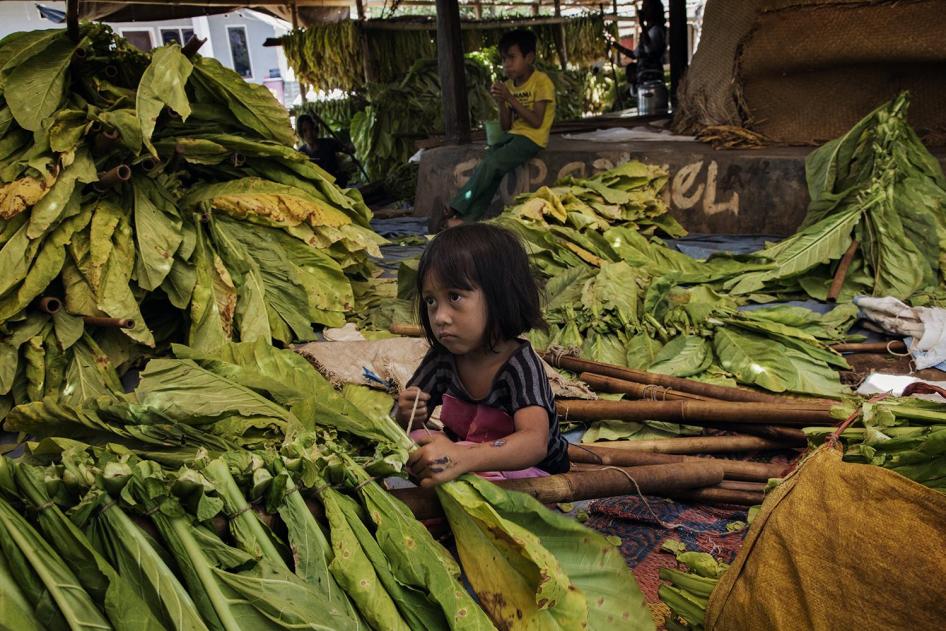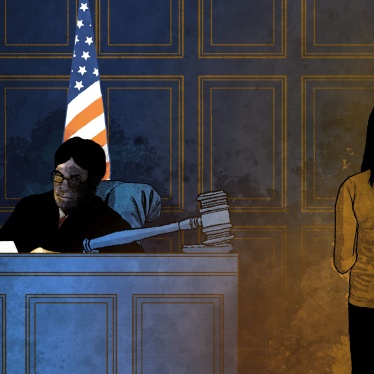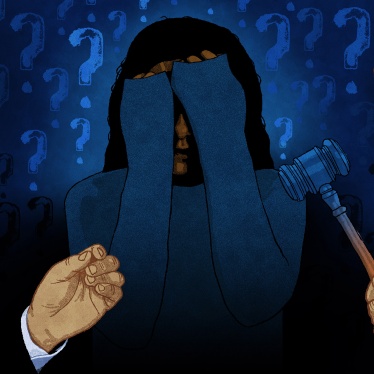Young girls in Morocco work 18 hours a day as maids for wealthy employers. Boys in Ghana carry heavy sacks at mining sites, and children in Indonesia get sick working in tobacco fields. For these and millions of other children, child labor jeopardizes their education, their health and safety, and their futures.
But child labor doesn’t happen only abroad. In the United States, labor laws allow children to work in agriculture at much younger ages, for longer hours, and under more hazardous conditions than children in other industries. This means that a 12-year old can work 50 or 60 hours a week in fields, exposed to toxic pesticides and extreme heat, and it’s legal.
Children working in U.S. tobacco fields face great health risks. When Human Rights Watch interviewed 140 child tobacco workers in North Carolina, Kentucky, Tennessee and Virginia, the majority reported symptoms consistent with acute nicotine poisoning, including nausea, vomiting, headaches and dizziness. The U.S. is the world’s fourth largest producer of tobacco, yet has no regulations to protect children in the fields from nicotine exposure. Some tobacco companies have adopted policies not to purchase tobacco from farms employing children younger than 16, but voluntary policies are not enough.
Congress has a chance to remedy the gaps in U.S. law. This month, members are re-introducing legislation to eliminate the child labor exception for agriculture, and to prohibit child labor in tobacco farming. This would go a long way to address child labor in the United States.
World Day Against Child Labor, celebrated today, offers some encouragement. In the past 30 years, the number of children engaged in child labor worldwide has dropped by more than one-third — from 245 million to 152 million. That’s 94 million fewer children working in dangerous conditions or at young ages.
This progress did not happen by accident. It’s a result of smart policy choices that support vulnerable families and expand children’s opportunities.
The International Labour Organization has identified four policy initiatives that make the biggest difference in ending child labor. The most fundamental is to expand children’s access to education. When governments remove barriers to education — by lifting school fees, building more schools and improving their quality — children are more likely to go to school than to enter the labor market.
A second is to expand programs — often called “social protection” — to support the poorest, most vulnerable families. Monthly stipends, pioneered in Latin America, can help families meet their basic needs, replace the lost income of children who no longer work, and help families weather crises such as a sudden job loss or a health emergency, without resorting to child labor.
A third policy that makes a huge difference is to ensure decent work for adults and older youths. If a child’s parents aren’t able to earn a living, they are much more likely to send their children into the workforce. A well-regulated labor market will guarantee adult workers a minimum wage and ensure fundamental labor rights such as the right to organize and bargain collectively. Especially in the agricultural sector, where most child labor occurs, adult workers need a guaranteed minimum wage and farmers need fair prices for what they produce.
Finally, governments need effective child labor laws and enforcement. Laws alone aren’t enough, but when backed up by effective labor monitoring and meaningful penalties, they create an essential framework establishing what work by children is acceptable, and what isn’t.
Wherever it occurs, child labor drives cycles of poverty that persist for generations. Getting children out of harmful work will not only improve their education, their earning potential and future opportunities, but also benefit the society we live in.
The progress of the past 30 years also shows us that child labor is a problem we know how to solve.
Jo Becker is the children’s rights advocacy director for Human Rights Watch. Follow her on Twitter at @jobeckerhrw.








